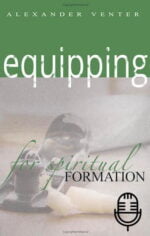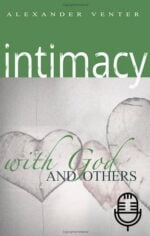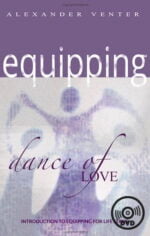To listen to the audio teaching of these notes click on the link
http://followingjesus.org.za/sermons/act-6-continued-the-gospel-mandate-of-reconciliation-part-5/
Last week I taught on Act 6 in God’s Drama: The Holy Spirit in & through the Reconciled & Reconciling Church – described in the Book of Acts. Paul called this “the message and ministry of reconciliation” given to us in Messiah (2 Cor 5:18-20), to reconcile people to God, and thus to oneself, others, & creation. This was made real in the Early Church by water baptism. The key to reconciliation and baptism is transformed identity.
Jesus’ Baptism in water
The Early Church got their understanding and practice of water baptism – by Messiah’s Co-Mission in Matt 28:18-20 – from Jesus’ own baptism. The key issue in both baptisms was identity. By choosing to be baptised Jesus identified himself with ALL sinners. As he stood in the water of John’s ‘baptism of repentance’ (Matt 3:13-17) he had no sins of his own to confess – as the only sinless One he confessed our sin on our behalf. Immersed into the waters, he symbolised he would willingly die our death in our place to wash away and bury our life of sin. His coming up out of water symbolised he would rise again. It was Jesus’ public act of obedience of his discipleship to God – that he willingly gave his life in faith to the Father, for HIS purpose. The Father then ‘tore’ the heavens open (Mk 1:10 cf. 15:38) and sent the empowering Spirit of Love on him, and publicly affirmed his identity: “YOU are my Son, my Beloved (Greek Agapetos), with whom I am well pleased” (Mk 1:11). This was Jesus’ identity, Beloved Son of God, from which he lived his life, did his ministry, fulfilling the Father’s call of reconciliation in the world.
Believers Baptism and change of identity
Early Christian baptism was not a ‘baptism of repentance’, but a ‘baptism confirming repentance and faith in Jesus’. When people put their faith in Jesus, saying ‘yes’ to following him, they were asked to express that publicly – to witness to Jesus – by being baptised in water for all to see. Thus baptism is our first act of obedience as a disciple of Christ. Standing in the water, we identify with Messiah (the only Righteous Saviour of the world), symbolising our death in/with him on the cross – we die to our sin (Rom 6:3-14). Immersed beneath the waters, we symbolise our burial with Christ. Or past life of sin is buried, together with whatever identity that defined us in THAT life. Raised up out of the water, we symbolise our resurrection in/with Christ to a new life in God, to a new identity in Messiah. The early Christians then laid hands on the baptised believer to impart the empowering Spirit of Love, affirming them in the new identity, conferred on them by the Father in the open heavens. I’m sure they looked up expecting the heavens to open, a dove to come down, a voice to speak, saying, “Gilli, YOU are my daughter… Alexander, YOU are my son… My Beloved, in whom I am well pleased.” Our new identity is Beloved Child of God, from which we live our new life in Christ, do our ministry with and for him, and fulfil his plan of reconciliation in the world. Continue reading Act 6 continued: The Gospel Mandate of Reconciliation





